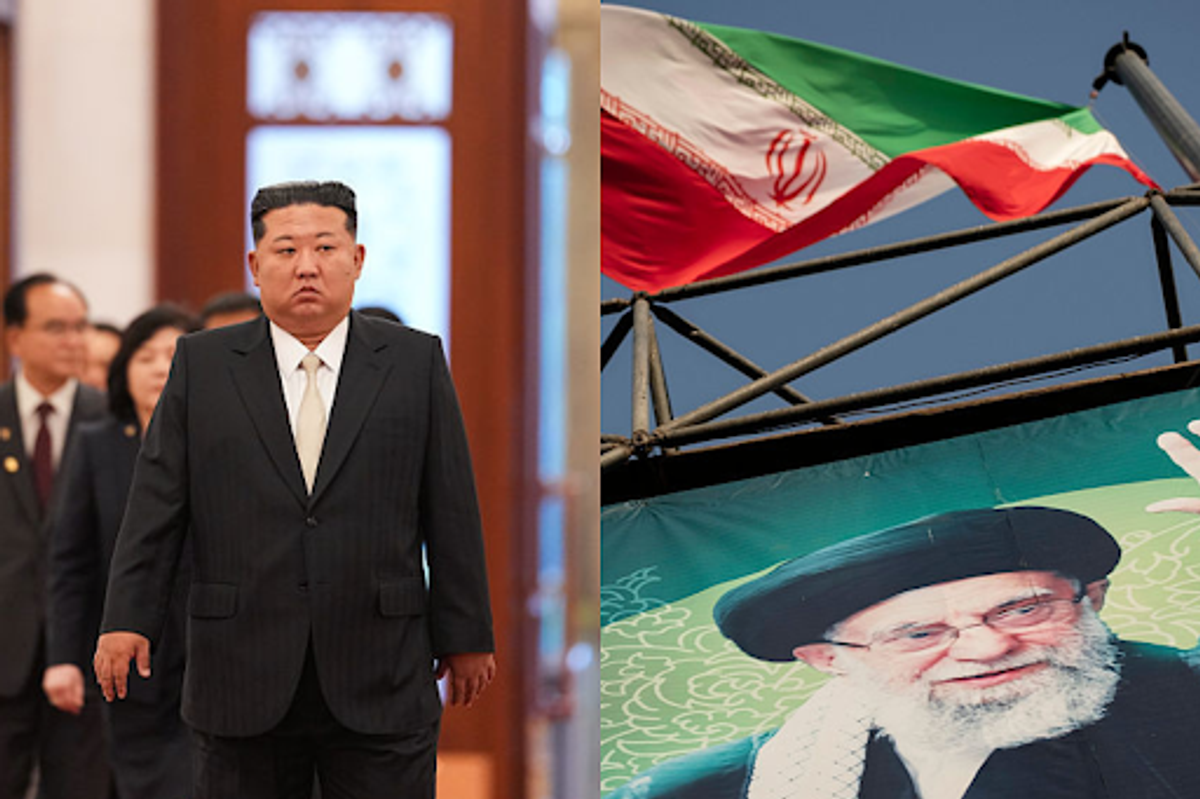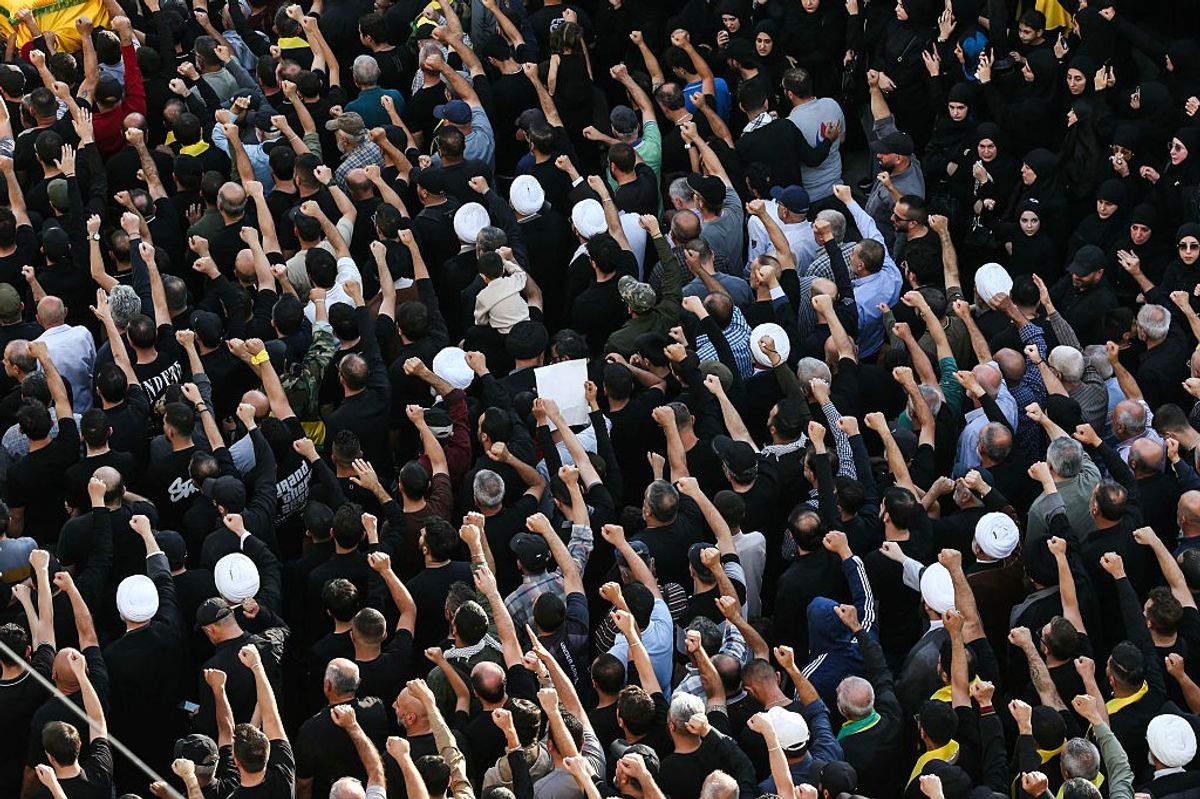OPINION — As tension in the Middle East increases, with the likelihood that Iran will strike out at Israel for the July assassination of the Hamas leader Ismail Haniyeh, the prospect for war in the Middle East has become more likely. This would be a war involving an Iran aligned with North Korea, a proliferator of missile and nuclear technologies.
Iran looked to North Korea for conventional weapons assistance during its war with Iraq in the 1980s. And in the 1990s, it was North Korea that provided Iran with the ballistic missile assistance for Iran’s medium-range ballistic missiles, the Shahab 1, 2 and 3, all based on North Korea’s Nodong missiles, with a range exceeding 700 miles.
Iran today is a threshold nuclear weapons state. According to the International Atomic Energy Agency (IAEA), Iran is enriching uranium at the 60% purity level, while denying access to IAEA monitors to visit suspect nuclear weapons sites in Iran. In 2003 Iran reportedly ceased efforts to become a nuclear weapons state. Today it’s obvious, however, that Supreme Leader Ayatollah Ali Khamenei wants to keep the option open of acquiring nuclear weapons.
Indeed, if there is an imperative for Iran to acquire nuclear weapons, and knowing the IAEA and the international community are watching closely their nuclear weapons-related activities, then having an ally in a nuclear North Korea is a good default option. It means Iran may be able to acquire the nuclear weapon(s) or fissile material for a dirty bomb directly from North Korea for its use against Israel or any other adversary. Or Iran can pass the nuclear weapon or fissile material to one of its proxies – Hamas, Hezbollah or the Houthis – for use against Israel or another enemy.
Watch The World Deciphered, a new weekly talk show from The Cipher Brief with expert commentary on national and global security available exclusively on The Cipher Brief’s YouTube channel. Subscribe today.
Under the cover of darkness, just after midnight on September 6, 2007, Israeli F-15s entered Syrian airspace and bombed a nuclear reactor at Al Kibar, Syria. Silence followed for a few months, until the U.S. Government and the IAEA confirmed that the Al Kibar site was a nuclear reactor, a gas-cooled, graphite-moderated facility like North Korea’s nuclear reactor in Yongbyon. In April 2007, Meir Dagan, Israel’s Director of the Mossad, had traveled to Washington and briefed National Security Advisor Steve Hadley and Vice President Dick Cheney about Israel’s detection of Al Kibar and North Korea’s assistance in the construction of this nuclear reactor, with photos of the North Korean official in charge of the reactor at Yongbyon standing next to the leader of the Syrian Atomic Energy Commission.
This was a clear case of North Korea providing technical and material support to Syria for the construction of a nuclear reactor for one purpose – nuclear weapons.
This was in 2007, although reportedly North Korea’s assistance to Syria for this nuclear reactor had begun years earlier, at a time when North Korea was engaged with the U.S. and others (China, South Korea, Japan, and Russia) in the negotiations known as the Six-Party Talks. Indeed, in September 2005, there was a joint statement committing North Korea to dismantle all its nuclear weapons and ongoing nuclear programs in exchange for economic development assistance, security assurances, a discussion of civil nuclear energy assistance and a path to normalization of relations.
The irony, however, was that North Korea was prepared to put that progress in jeopardy to assist Syria with the construction of a reactor for nuclear weapons.
It’s not just for the President anymore. Cipher Brief Subscriber+Members have access to their own Open Source Daily Brief, keeping you up to date on global events impacting national security. It pays to be a Subscriber+Member.
The current situation is starkly different. North Korea ceased negotiating with the U.S. and South Korea a few years ago. Indeed, North Korea has been in a race to build more sophisticated nuclear weapons and ballistic missiles to deliver them, while refusing to talk to the U.S. or South Korea, whom they view as their principal enemies. Moreover, North Korea is now more closely aligned with Russia, China and Iran, with North Korea reportedly providing Russia with artillery shells and ballistic missiles for its war in Ukraine, in return for nuclear, missile and conventional weapons support from the Russian Federation.
This is a time for extreme counterproliferation diligence, to ensure that North Korea does not provide Iran or one of its proxies with a nuclear weapon or fissile material for a dirty bomb. The Proliferation Security Initiative (PSI), established in 2003, currently with 113 member states, was established to ensure that North Korea does not proliferate nuclear weapons or fissile material to Iran or any other rogue state or terrorist organization.
Ideally, the U.S. should be passing this message directly to the leadership in Pyongyang, to ensure that North Korea understands that there would be severe consequences if they proliferate nuclear weapons, fissile material or nuclear technology to Iran or any other state or terrorist organization.
This column by Cipher Brief Expert Ambassador Joseph DeTrani was first published in The Washington Times
Read more expert-driven national security insights, perspective and analysis in The Cipher Brief because National Security is Everyone’s Business.










